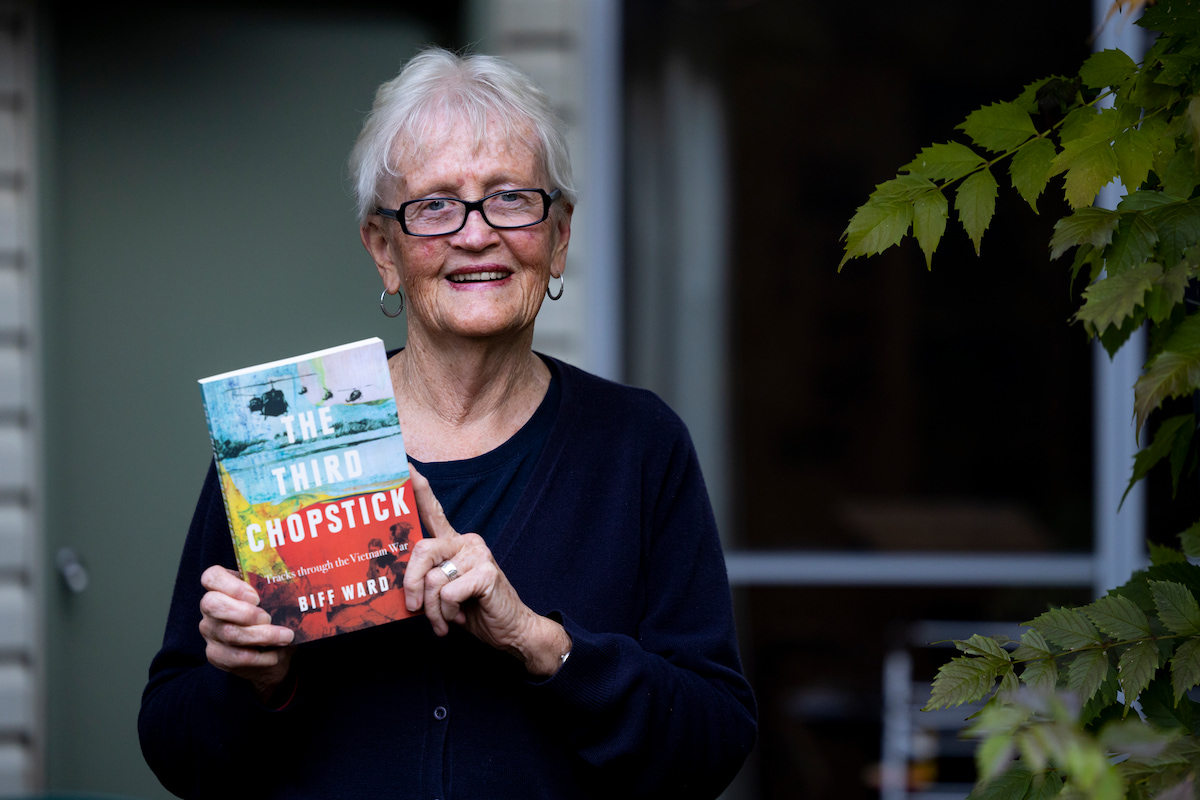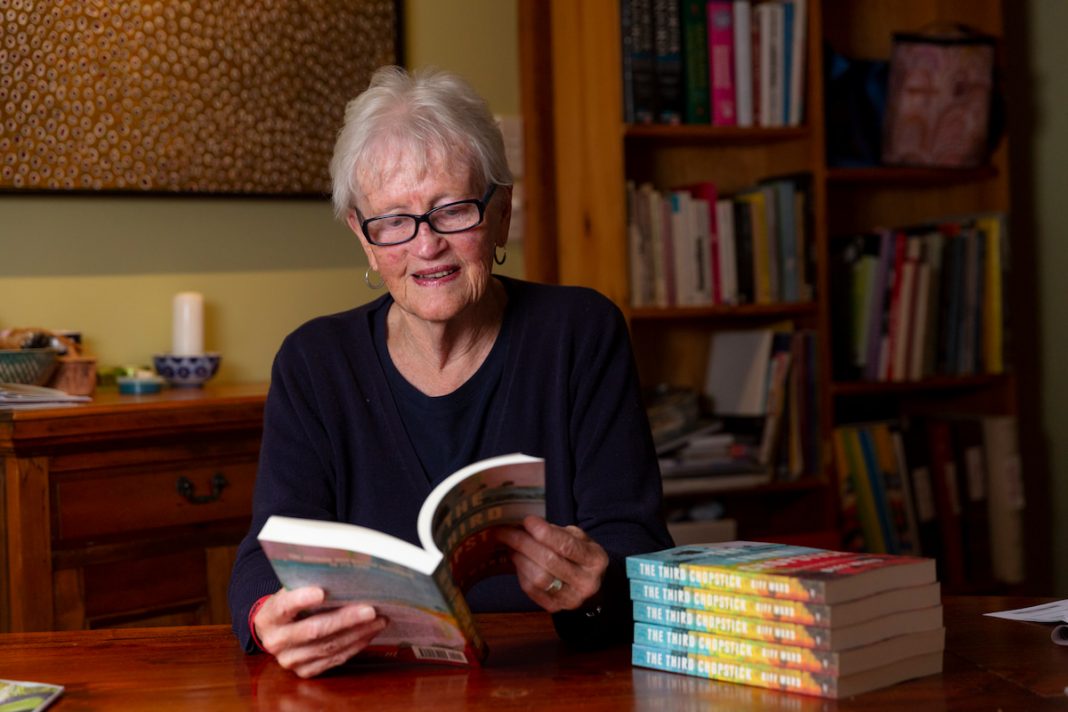Canberra resident and founding member of Australia’s women’s liberation movement, Biff Ward, 78, chats with CW journalist, Anja de Rozario, 23, about feminism, the Vietnam War, and the new generation’s continuing march for justice.
When founding member of Australia’s women’s liberation movement, Biff Ward (78), stood in front of thousands at the 2021 March4Justice, she said she never thought she’d live to see the day.
“That was true,” she smiled into her teacup, as we sat among her many bookshelves and family photos. “I really thought it would happen somewhere off in the future, long after I was dead.
“Two generations; 50 years. That’s how long change takes.”
From the original ‘Brazen Hussies,’ the group of Australian feminists who defied the status quo in the 1960s and 1970s, Biff reflected on those initial moments the patriarchy became visible to them, and seemingly no one else.
“We were seeing the world one way, then we had a meeting with other women and suddenly we were seeing it differently.
“It was enormous. And hard to convey to people who never had that experience, never seen sexism, who were just accepting the world how it was.
“It was like we entered a new world, and it was only us. So we were regarded as crazy; every time we were mentioned in the press we were just completely ridiculed.
“But nothing stopped us.”
Brazen Hussies was the name coined for the ground-breaking documentary film by Catherine Dwyer, which Biff starred in last year.
“What I love is that the name of the film has become our identifier. I used to say I was a 1970s Women’s Liberationist. Quite a mouthful and some young women had never heard of us. They thought there were suffragettes, and then them,” said Biff.
“I love that we’ve now got a name. On the day of March4Justice they announced, ‘Now we have with us a Brazen Hussy!’ and everyone screamed!”
“But they didn’t call us that at the time. No, no. They called us hairy armpit women’s libbers. They called us ugly, too ugly to rape. There was incredible put-down, all the time.
“When I look back on what I’m most proud of, it’s not as an individual. That period of feminism invented the word ‘sexism’; the word ‘sexual harassment’. It put domestic violence and rape on the map. [It said] these are urgent issues that we have to deal with,” she said.
“I think body integrity is fundamental. If you can’t feel safe in your own body, then all the other issues – childcare, equal pay – feel further away. For me, I have to be safe here. And we’re still fighting for that.”
Biff’s voice wavered, as she remembered the faces looking up at her at March4Justice.
“I get tearful when I remember how that animated everyone that day.
“All women know this. Even the Margaret Thatchers of the world who insist ‘that’s never happened to me,’ in their bones, they know it. They’ve thought ‘I mustn’t walk down that dark lane’.”
She smiled, wiped her eye. “Following the 1970s movement, a lot of women went into the bureaucracy, education, created the women’s studies courses we know today. So, by the late ‘80s, from my perspective, it had all sort of quietened down.
“There wasn’t a movement anymore, and it looked like nothing much was happening. But something was happening. I look at young women now, and they’ve really thought about these issues and have all this new language. I think that groundwork we did in the ‘70s and ‘80s has been seeding away, and now the seeds have grown into a big tree.”
Biff remains close with the founding members of the feminist group.
“Starting back in the ‘90s, some of my sisters used to say, ‘How do we pass on the baton? Young women aren’t active.’ I always thought it’s not our right to pass on the baton; it’s their life and their world.”
I asked Biff if she feels comfortable with my generation in the driver’s seat. Her answering smile was warming. “Yes! I trust young women completely. They’ll make mistakes, we all do. But the fire that was in the women last year… I know you’ll do everything as best you can.”
Following her memoir, In My Mother’s Hands, Biff’s miles marched in the Vietnam War protests led to writing her latest book, The Third Chopstick, written from the candid accounts of veterans, and her own relationship with Vietnam.
“I was an extremely passionate protester against the Vietnam War, in the five years leading up to Women’s Liberation. When the war ended in ‘75, most of the protesters moved on, and I had too, but some part stayed in me.

“I just had this pull to Vietnam, this great desire to see it, to smell it and feel it. It was an out-of-body experience, the only one I’ve ever had in my life.”
Biff has been to Vietnam 15 times to date and calls it her second home.
“The war lives on there in ways that it doesn’t for us. Not even for the veterans. It lives on in terms of their family histories and the people who died. With three million dead, everyone has lost someone.”
When asked what the one message she hopes readers will take away from the book, Biff’s answer was clearcut. “War is f*cked. I hope that the whole book shows how utterly needless it was.
“And I hope it shows that we’re all connected. When we were young, it felt like the protesters and soldiers were in two different camps, and now that we’ve gotten older and more sensible, it’s very clear to me we were all connected.”
If this story raised any concerns help is available: Call 1800 RESPECT or Lifeline on 13 11 14.



